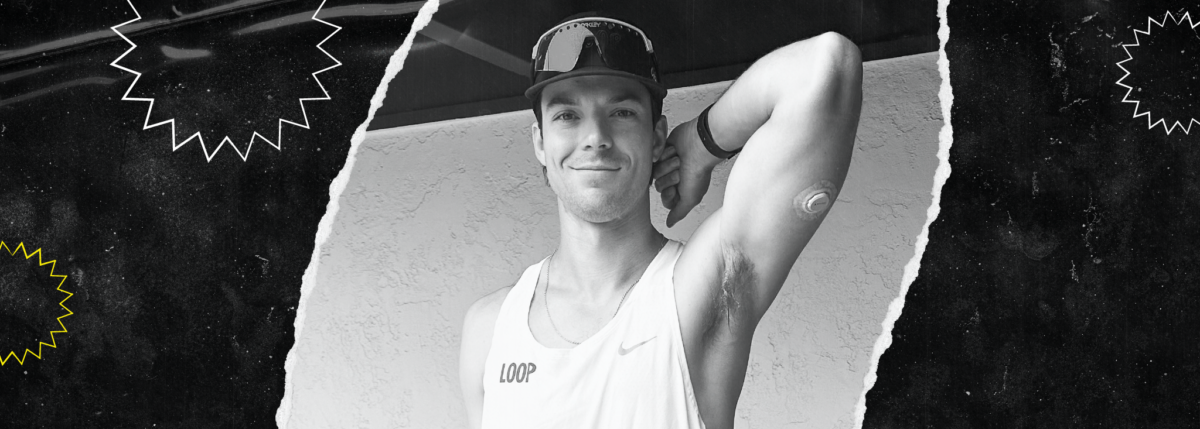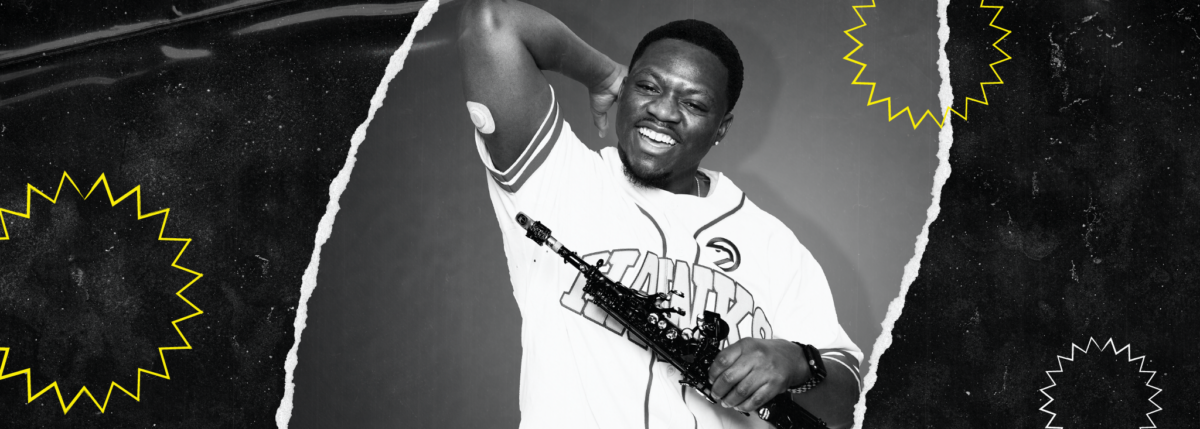Former Professional Wrestler Discusses Living with Diabetes
Written by: T'ara Smith
8 minute read
April 22, 2019
Randy Thornton is a former NFL player and professional wrestler. He played for the Denver Broncos from 1988-1990 and wrestled in the WCW from 1991 to 1998 under the name "Swoll" as member of Master P's No Limit Soldiers. Since being diagnosed with Type 2 diabetes in 2011, Thornton has become an advocate for people living with the disease. Read our interview with him
Randy Thornton is a former NFL player and professional wrestler. He played for the Denver Broncos from 1988-1990 and wrestled in the WCW from 1991 to 1998 under the name “Swoll” as member of Master P’s No Limit Soldiers. Since being diagnosed with type 2 diabetes in 2011, Thornton has become an advocate for people living with the disease. Read our interview with him below.
When were you diagnosed with type 2 Diabetes, and did you experience any symptoms?
Yes. I was diagnosed in 2011. I was a diabetic for a long time but I just didn’t know I was, as I sit down and think about it now. I had all the signs of a person with diabetes, but I didn’t know I was diabetic. The first thing I experienced was everything I would drink was tasting like sour milk. Then I started getting dizzy, which continued for four or six months before I went to the hospital. I would just get dizzy and tired. I’d stand up and feel like I was about to faint. I knew something wasn’t right and one day, I just couldn’t eat because the food tasted nasty. So, I started drinking apple juice and orange juice which made my blood sugar spike up higher. I went to my mom’s house and my mom looked me in my face and asked, ‘What is wrong with you?’. And I said, ‘Mom, something’s not right’ and she took me to a doctor in the emergency room. The doctor conducted blood tests and immediately asked why I wasn’t taking my diabetic medicine. My response was ‘Well, I’m not a diabetic’ and he replied, ‘Yes, you are’ and told me I was falling into a diabetic coma and my blood sugar was 55.4 mmol/L998 mg/dL. They kept me in the hospital for three days.
What was your A1C at the time?
I couldn’t tell you. I don’t remember.
What were your reaction and your first plan of action after your diagnosis? Did you have to immediately change your diet? What did the doctor tell you to do?
I immediately changed my diet. I mean, immediately. When I was in the hospital, I remembered I ate Popeye’s every day. I ate McDonald’s every day. I ate Burger King. My family and I live in Louisiana and we have soul food restaurants on every corner that sell Cajun food. I was eating fast and soul food every day.
My first reaction was I felt my life was over. Because everything that I heard about diabetes, I thought it was like a death trap. I still remember when the nurse gave me my first insulin shot. I fell into a depression and felt my life was completely over because by me being an athlete working out and training, I was 280 pounds then. It wasn’t until years later that I started doing my own research and I found out that a lot of people have controlled and beat their diabetes.
Does diabetes run in your family?
No, it doesn’t. I’m the only one in my family, that I know of, that has diabetes.
How did you use your skills from your careers as a wrestler in WCW and as a football player with the Denver Broncos to help you manage it? Did you use some of the same dieting and exercise principles you learned throughout your career?
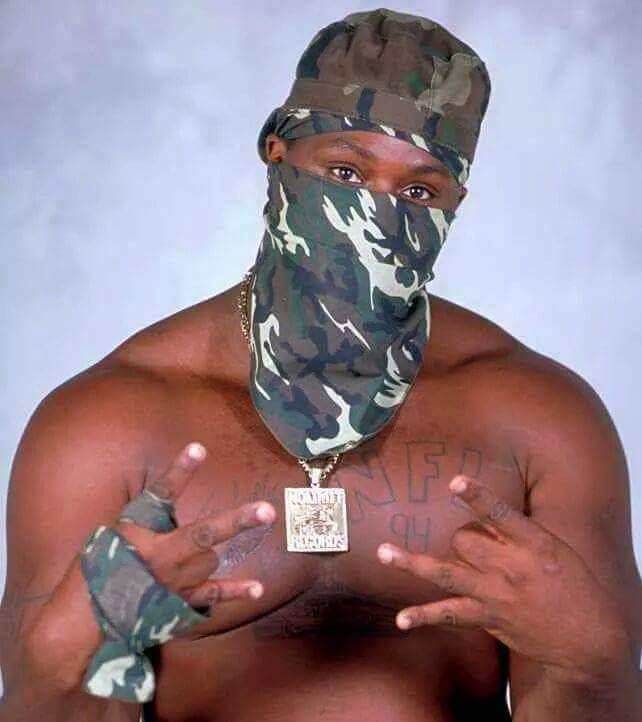
Yes. That’s the crazy part. On May 17th, 2017, I was sitting in my house and I was praying. I said, “God, I’m on 18 different medications for diabetes. I’m on heart medication, high cholesterol, antidepressants and pain pills. I’m gonna die because I’m taking so much medication my teeth were falling out.”
I only had nine teeth left in my mouth. And God told me, “It’s nice that you pray to me every day but it’s time for you to start doing something. Get off your butt and do something.”
So, I joined a gym. I was 282 pounds and I couldn’t bench press 135. I couldn’t ride the bike for five minutes. I told myself I was going to train as if I were going to a football camp. I wrote out my own workout program full of weekly and monthly goals. In the first six months, I lost 100 pounds.
I lost the weight because I stopped eating fast food, was only drinking water, and ate nothing but salad, tuna, and baked chicken. The weight started to fall off. I started jogging. Now I can bench press 500 pounds again. I’m back to being the ripped Big Swoll and now I’m in better shape now than I was in my twenties.
When I went to the doctor six months ago the doctors couldn’t believe I did it. My blood sugar was so good that I went from taking insulin twice a day to only once at night.
I was telling a friend of mine that I’ve won many awards in my life for football and wrestling with No Limit in the WCW. I think the proudest thing in my life is when the doctors told me that my blood sugar was 5.5 mmol/L100 mg/dL. After receiving that news, I sat in the car and cried.
Can you elaborate on the medication were causing dental issues? Did you also experience any other diabetes-related complications?
I was on antidepressants. I was also taking medication for muscle spasms because I broke my neck and I had nerve damage on the right side of my body. I couldn’t use the right side of my body for a few years. Plus, I’d suffered a head injury. So, I have 47 white spots in my brain now because of the damage to my brain. We don’t know if it’s because from a previous accident or from me playing football. I was also taking medication for high cholesterol, was taking two different diabetes medications and multiple pain pills. This is the honest-to-God truth but I would lay in bed for 15 hours a day just staring at the wall. This went on for years and there were days that I don’t know how my wife even put up with me. I wouldn’t even shower. I would just lay in the bed all day and stare at the wall.
A year after I was diagnosed with diabetes, I had a heart attack. Now that was scary. I started experiencing visual problems. I do wear glasses but my vision has gotten better.
What kind of support do you receive from your family? You have a wife and daughter, do they help you manage diabetes? Are you motivated to take care of yourself because of them?
Yes. They are very supportive, but when you have depression, nobody can help you. I used to sleepwalk or watch TV if I couldn’t rest. One morning, I went into my daughter’s bedroom and I looked at her and made her a promise. I told her no man would ever walk her down the aisle on her wedding day but me. That’s my motivation.
My wife is sweet and I just look at her and she always tells me, ‘You’re still Big Swoll, so get up and do something’. Women are the queens and the backbone of the family. This was an important reminder at a time when everybody abandoned me. A lot of people think my celebrity friends helped me out, but they didn’t. No one from the record label or wrestling once picked up the phone to ask how I was doing or if I needed any help.
There were rumors I was in prison or I was dead. I wouldn’t go out in public or do any interviews. But, a lot of my fans were writing to me and keeping in touch with me, but I wouldn’t respond to them because I was too embarrassed about my situation.
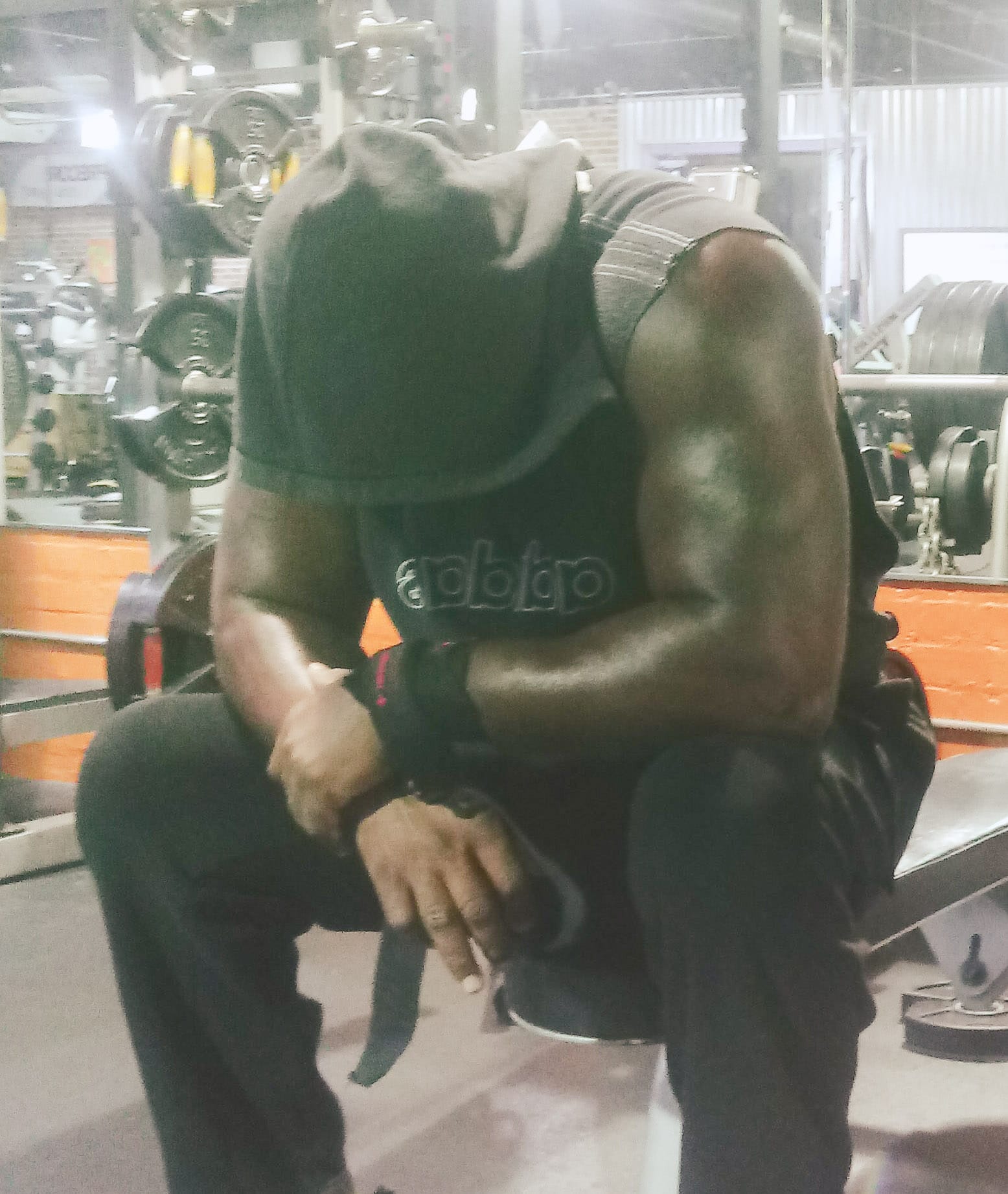
You consider yourself as a spokesperson for diabetes, post your workouts on Instagram, and talk about how you manage it. How else do you bring awareness to diabetes, how it can be controlled, and how people can still live a good life with it?
It is so funny that you ask that question. Recently, I was in a meeting last night with a friend of mine and he asked me what are my goals for my future. I told him I want to be active with people with diabetes as a spokesperson or anything. When he asked why, I said I meet someone every day with diabetes—at the gym, in the store, or people who come up to me in the street.
I want people to know that it’s not a death wish. It’s controllable. You can live a long, active life. And I belong to a few diabetes support groups on Facebook and I’m always encouraging people to change your eating habits, work out, get active. I try to help as many as I can, but also realize it’s a personal journey and people need to make changes on their own. One guy told me he couldn’t live without soda. I gave him the advice to change his eating habits, but he has to want to change your life. You have to want it to get better.
I say this to the young people I meet, too. I met a 16-year-old girl with diabetes and asked her how she was going to handle it, and she told me she was going to keep up with her same old eating habits and I had to tell her she needs to take it seriously.
For someone who is newly diagnosed, like that 16-year-old, what is your advice for them?
Check if your hospital has a diabetes support group. I know where I went the name of the hospital is called Ochsner. Ochsner Hospital in New Orleans. I went to a bunch of support groups and that really helped me out a lot.
What do you think is the biggest misconception about Type 2 diabetes?
That your life is over. That you can’t beat it. That people think you just should lay down and die and just accept it. I’m not accepting it.
You have to tell people the danger of diabetes and it can be controlled. I’m walking truth that you can control it. That you can beat it. I’m going to live a long active life. I love eating healthy foods and drinking my water. It’s just something we have to control and I just want people all over the world to know that if you have diabetes, handle it.
Another one is how we think about outward appearances. if you see me on the street, you’ll see a 6’6, big, old man with muscles. I look healthy, so no one thinks I have diabetes.
I have a friend who weighs 500 pounds and he doesn’t have diabetes, high cholesterol, or any other health issues. It’s like you’ve said, diabetes doesn’t have a specific face.
Where can our audience learn more about you, your work, and get in touch with you?
I’m on Facebook and Instagram. Anybody wants to get in touch with me can email me at [email protected], and I do reply. I personally respond to every email, every fan page, every mention that I get. This just shows them that everyone who interacts with me is important to me. That I’m not trying to be rich or make money, but I truly enjoy helping people because nobody was there to help me and I know the struggles.
I recently spoke with a friend of mine who wasn’t taking care of his diabetes and they’re thinking about amputating his leg because of diabetes. He’s only 42. However, I try to stay positive with him and be supportive through this tough time.
That’s tough to watch people go through that.
I’ll never forget the first time I was at a family function and I had to inject insulin. I come from a very large family and I couldn’t go any rooms or bathrooms because there was always somebody going in it. So I gave myself a shot in front of everybody and their faces showed nothing but confusion and shock.
I’ll say this, if you have diabetes and go to the gym, don’t let random people tell you to change your eating habits or stop eating all sugar. I say this because a friend of mine with diabetes met a trainer who drastically changed her eating habits, including excluding carbohydrates and she went into a coma. We need it in our diets. I know for me if you take it out of my diet, I’m dead.
When you say sugar, what do you mean? Do you mean carbohydrates, even healthy ones, or are you talking about processed ones like candies and cookies and cakes?
I workout four hours a day, so for me, processed ones work when I’m working out and my blood sugar drops really low, so I keep a peppermint or a lollipop on me and they raise my blood sugar back up immediately so I can keep exercising. I walk around the gym sucking on a lollipop my whole workout.
Have you ever had hypoglycemia?
No. All this stuff is new to me. I’ve been an athlete my whole life. I’ve only been living with diabetes for about seven or eight years since 2011 and I am still learning about it. But, I can tell you one thing, if we talk 20 years from now, I’ll still be on this earth because how I care for myself. My ultimate goal is to be able to manage diabetes without insulin.
I’m gonna ask you one more question. How do you live powerfully with diabetes?
My family motivates me because I have to be there for them. As a father and a husband, I’m the leader. They look up to me and I want to be here for them. Thank you for allowing me to share my story. Now let’s make this happen. Let’s get out and share it with the world.

Author
T'ara Smith
T’ara was diagnosed with type 2 diabetes in July 2017 at the age of 25. Since her diagnosis, she focused her academic studies and career on diabetes awareness and living a full life with it. She’s excited to have joined the Beyond Type 1 team to continue her work. Outside the office, T’ara enjoys going to the movies, visiting parks with her dog, listening to BTS and cooking awesome healthy meals. T’ara holds an MS in Nutrition Education from American University.
Related Resources
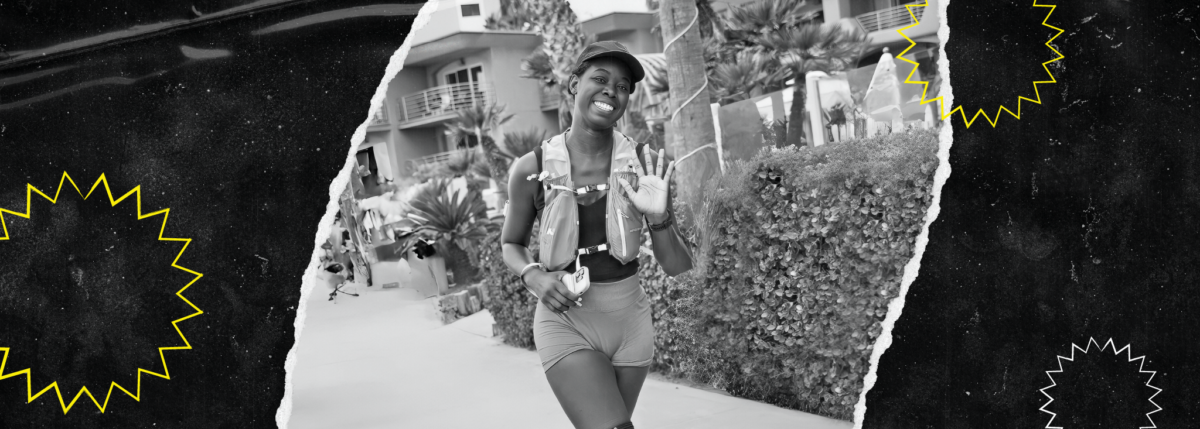
Danica Collins not only prepared for one of the most challenging physical events of her...
Read more
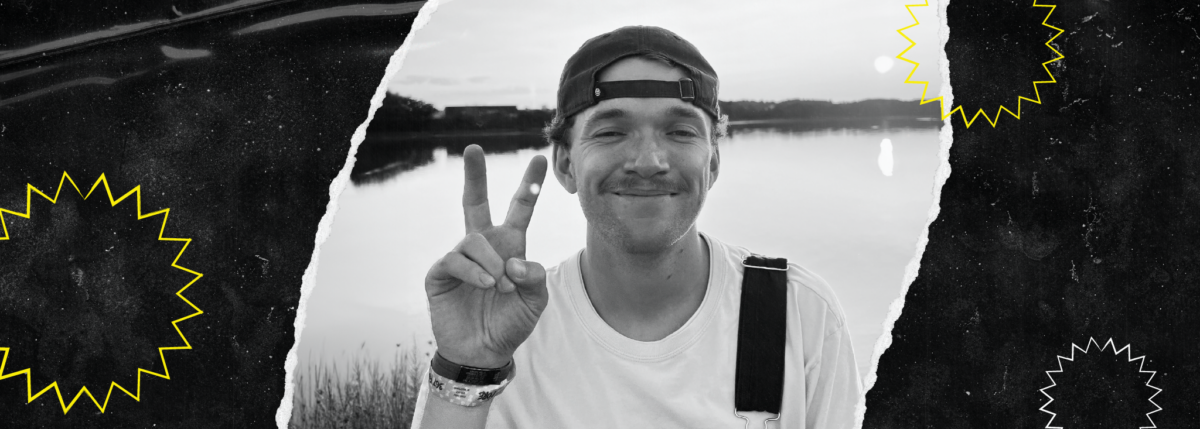
Beyond Type 1 is spotlighting inspiring athletes with type 1 diabetes as they prepare for...
Read more
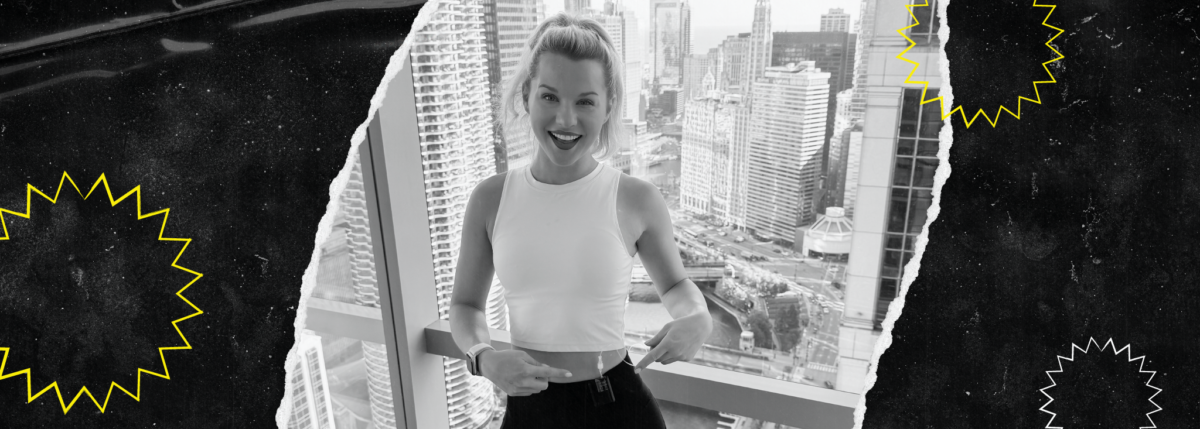
On November 3, 2024, Taylor Rindfleisch of Chicago laced up her running shoes for the...
Read more
